|
A WebQuest for 9th to 12th Grade
Students in Automotive and Food Service Technology Programs
Designed by:
Guy Amoroso and
Bob Lacivita

Who
is Going to Save Planet Earth?
Table of Contents

Introduction |
Task
|
Curriculum Standards
|
Process and Resources
|
Evaluation |
Conclusion |
Credit and References

What is the single most serious issue facing planet earth's
future? There could be many answers to this question. However, many of the
world's leaders in science, technology and
government believe
protecting our environment
and the quality of the air we breath, the water we drink,
protecting our natural resources and
finding alternative energy sources to
produce safe, efficient reduced pollution energy are the main issues facing
our planet's future.
This assignment will allow you to experience the value of
recycling. In addition, you will be able to compare and contrast the
different types waste produced within two separate and dissimilar technical
vocational programs. You will then determine what similarities exist in the
wastes generated and how they need to be handled during their recovery (when
the waste products are produced), storage, recycling and/or disposal.
Recycling in Vocational Labs
Click here for a listing of
common waste materials.
Back to Top

Working in groups of four, from the lists provided, you will
research four separate
wastes (for a total of eight) that are
produced in each lab area. Links to web sites with information about these
waste products, plus other classroom resources material will be available
for you to use.
Once you have your research, your group will determine:
When all research is completed, each group member must present:
 | A summary of findings. |
 | A one-page reflection paper on what you fell you learned during this
WebQuest and how you will use this information in the lab (and
home) from your findings. |
 | A two-to-three page essay comparing the waste products from the auto
lab to the ones produced in the food service lab and how each waste
product is recycled or disposed of. |
The group will present:
 | An outline of their research. |
 | A five-to-six page report, including at least one graph or
mathematical formula, to clarify their findings and a bibliography. |
 | Present an oral report of their findings to the class using either a
PowerPoint presentation, overhead display, poster or model to help explain
and defend findings and conclusions. Each presentation must include at
least one graph or mathematical formula. In addition, show how language
arts, math and science skills were used during the course of this project. |
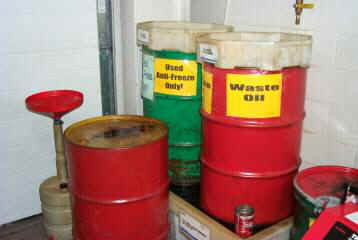
55 Gallon Drums
Of
Waste Motor
Oil And Anti-Freeze
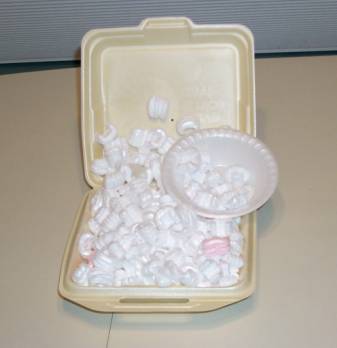
Styrofoam Food Carry-Home Container, Plate and Packing "Peanuts"
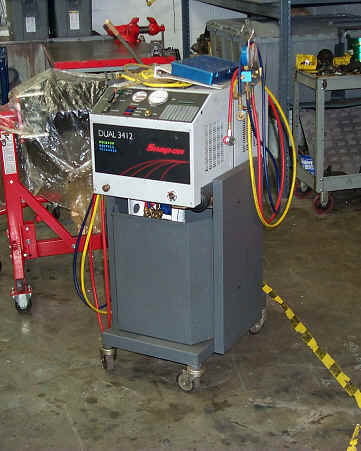
Air Conditioning
Refrigerant Recovery, Recycling, Recharging Unit (Snap-On)
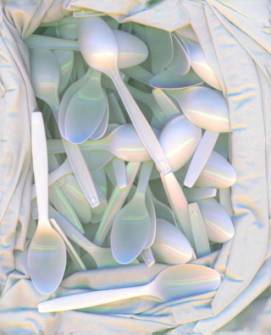
Looking at New Ways to
Reuse/Recycle Plastics
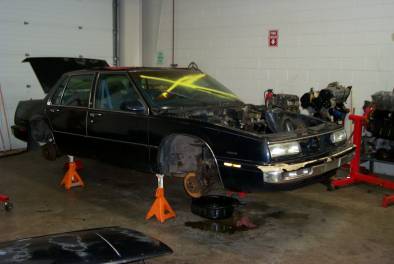
Car Ready For The Junk
Yard
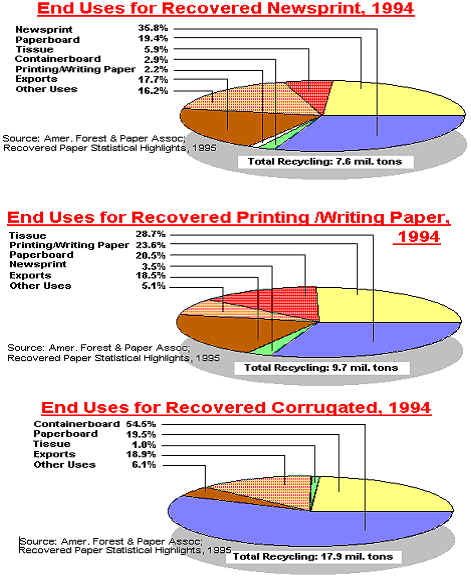
Paper Products Have Been Recycled
for Many Years
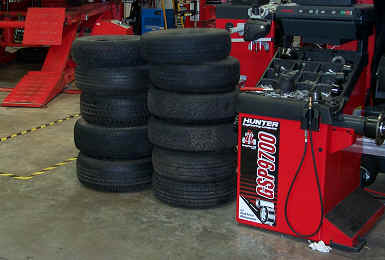
Old Tires

Swine and Dairy Cow Waste Treatment
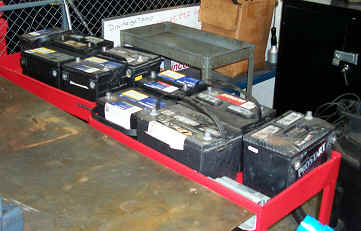
Old Worn-Out Batteries
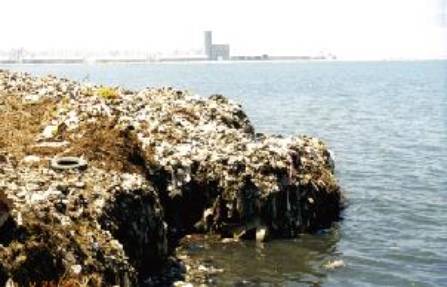
Solid
Waste Management Site (Mostly Piggy Poop)
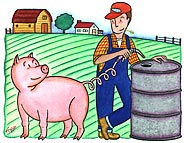
Poop Into Energy
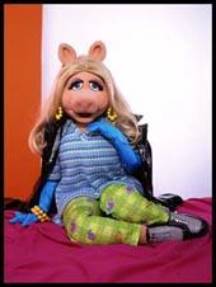
Our Miss Peggy is Not Just Any Old
Swine!
Back
to Top

Demonstrate the ability to recognize the relationship
between the waste generated by a technical vocational lab and economic the
environment impact of these wastes by integrating language arts, math and
science skills.
Back to Top

Assign roles within your group:
 |
Examples:
 |
Team member 1: Recorder - record Web site names, dates
visited, other important information to be used. In addition, work with
all team members in their research. |
 |
Team member 2: Researcher - Find if the waste is
recyclable, and its impact on the environment. Locates websites and
other sources of information to support conclusions. |
 |
Team member 3: Essayist - What is the economic impact;
can the waste be used as an alternative fuel? Lead discussion of what
will be included in the final group report. |
 |
Team member 4: Presenter - MSDS, can waste be recycled
on site, can be recycled on site or does it need to be removed by a
certified waste removal company? Find if the waste is recyclable, and
its impact on the environment. What is the economic impact; can the
waste be used as an alternative fuel? Builder of final visual aid for
oral presentation. |
|
 |
MSDS |
 |
Can waste be recycled on site, or does it need to be
removed by a certified waste removal company? |
 |
Access to on-line resources |
 |
Record findings |
 |
Write outline |
 |
Write summary of findings |
 |
Write reflection |
 |
Compare and contrast waste products of each lab |
 |
Write team essay |
 |
Oral presentation |
Resources:
 | PCs with Internet access |
 | Trade home e-mail addresses and phone numbers |
 |
URL Tracking and
Information Sheets
(teacher provided on web site) |
 | Specific reference material:
 | MSDS book, encyclopedia, class textbook, EPA and MSDS videos,
teacher, resource person, WebQuest links |
|
Back to Top

Each portion of the WebQuest will be graded on the
following criteria using a standardized
Evaluation Rubric:
 |
Description of identifiable performance characteristics
reflecting a beginning level of performance. |
 |
Description of identifiable performance characteristics
reflecting development and movement toward mastery of performance. |
 |
Description of identifiable performance characteristics
reflecting mastery of performance. |
 |
Description of identifiable performance characteristics
reflecting the highest level of performance. |
Areas of the project to be graded
Individual grades will be issued for the following:
- Outline (10 points)
- Reflection (10 points)
- Essay on comparison/contrast of wastes and evidence of integrating
academic concepts (20 points)
The group grade will be issued for their findings on:
- Findings: The impact of waste products - recyclability, economic
impact, environmental impact, and if any of the wastes researched can be
used as an alternative fuel or recycled for another use (10 points)
- Academic concepts: How were they integrated into the project (10
points)
- Group report: Including findings, conclusions and bibliography (20
points)
- Oral presentation with visual aid: PowerPoint presentation, overhead
display, poster or model to explain and defend your findings and
conclusions (20 points)
Back to Top

Congratulations! You have just completed all the components of the
project. You have just looked at different waste by-products produced in two
unique technical vocational labs. More importantly, not only did you
research the facts of a serious issue of today and the future, you wrote
your own findings and drew your own conclusions and presented your
observations to the class. Well done!
Now you should have a greater appreciation about the
waste products produced in our school. Moreover, you now know how
to properly recover and store these waste products, determine if they can be
recycled, or have to be removed professionally.
Back to Top

Part of your final assignment related to this project is to
write a one-page reflection about what you learned during this WebQuest
experience, and how you will apply this new information into your daily
routine.
Back to Top

Photos,
Bob Lacivita;
Guy Amoroso;
AcclaimImages.com;
MonsterTrucks;
American Forest and Paper Association;
Microsoft
Encarta, 2004 Ed.; Webster's Collegiate
Dictionary, 10th Ed.
Special thanks to
Snap-On Tools;
MACS (The Mobile Air Conditioning Society);
Miss Piggy;
and the cast of thousands that helped me create this
WebQuest!
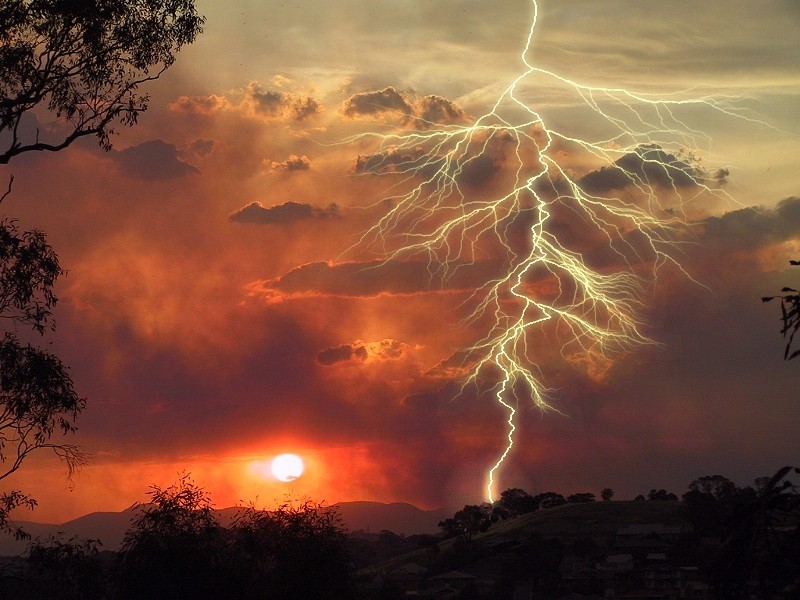
Our Planet is Always Under Attack by Mother Nature ---
Don't Add to the Damage.
Back to Top
Introduction |
Task
|
Curriculum Standards
|
Process and Resources
|
Evaluation |
Conclusion |
Credit and References
This Site Was Last Updated
|
